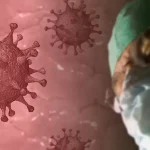
ZAGREB, October 16, 2020 – Health Minister Vili Beros said on Friday that Croatia had a serious increase in new COVID-19 cases and called on citizens to act seriously otherwise the virus would control their lives.
“Today the number of new infections for the first time has exceeded one thousand. The virus is spreading to the health system, retirement homes and is a serious threat all around. It is high time we took matters into our own hands. If we give up on personal responsibility, the virus will control our lives,” Beros said and called on the citizens to adhere to epidemiological measures.
The measures are not a punishment, the minister said, addressing the public together with Croatian Public Health Institute head Krunoslav Capak regarding the record high number of 1,131 new coronavirus infections in Croatia.
Over the past 24 hours, 117 patients have been admitted to hospital, and three people died yesterday, Beros said.
He said that the health system was still functioning.
“Our goal is not to shut down economy, but to find a way to coexist with the virus,” the minister said.
Capak: Worrying increase in infections
Capak said that there was a serious and worrying increase in the number of new infections, although there were no particular hotspots.
“We call on the citizens to accept the measures we have adopted this week and to act responsibly because that is the only way we can stop the increase,” Capak said.
He added that introducing new epidemiological measures was not being considered at the moment, as they were waiting for the recently adopted measures to take effect. However, there is still room to tighten the measures.
Arena hall and other facilities to be put into operation
Ivica Luksic from Zagreb’s KB Dubrava hospital said that KB Dubrava was becoming increasingly filled with patients, while Zagreb’s “Dr Fran Mihaljevic” infectious diseases hospital was filled to capacity, but the number of patients requiring intensive care had not increased significantly.
We are keeping things under control, but we as a society have to be serious and protect the health system, Luksic said.
According to Beros, the health system should be able to meet the needs, and he noted that there are 917 intensive care specialists and residents, 14,460 hospital beds, 800 ventilators and about 1,450 beds in intensive care units.
Plans are underway to put additional facilities, including the Arena hall in Zagreb, into operation if the number of COVID patients continues to grow.
“If the health system becomes overburdened, there will be problems with treating all patients,” the minister said.











